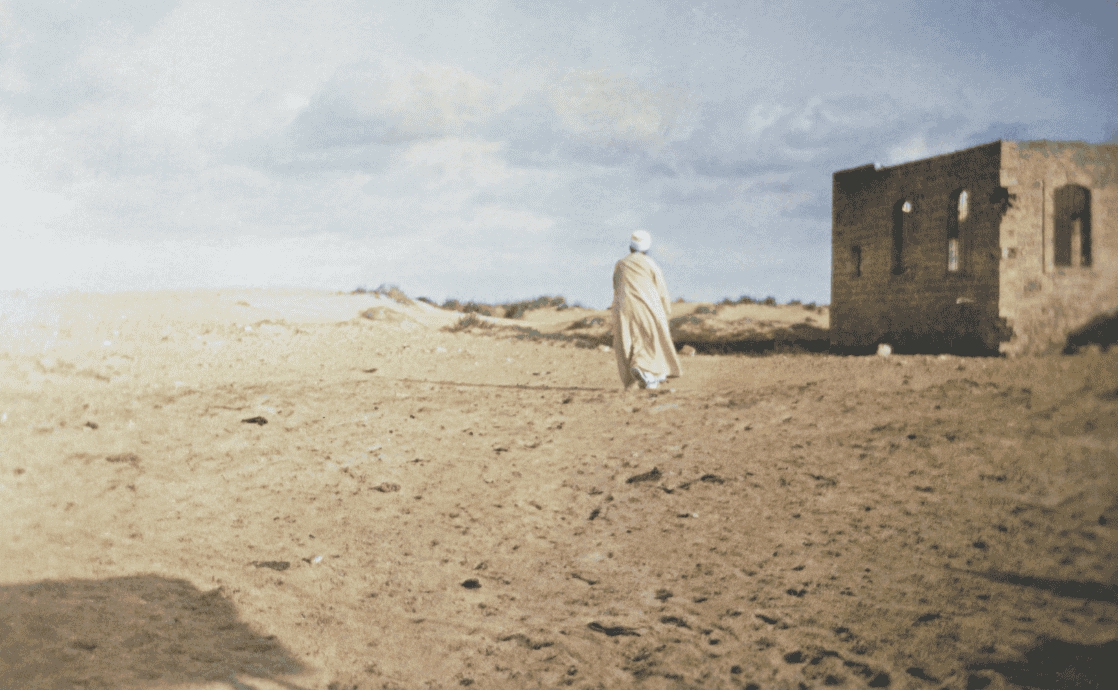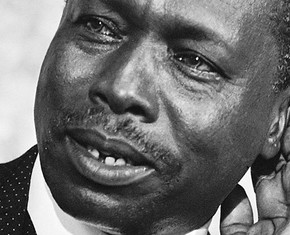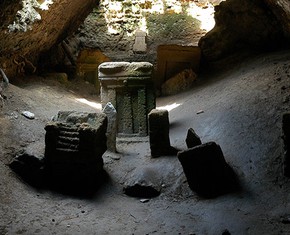The views expressed in our content reflect individual perspectives and do not represent the authoritative views of the Baha'i Faith.
Can you imagine a world where the inhabitants have transparency in their lives, a world with people whose words and actions cohere and their aspirations and activities correlate? Is this even possible?
These words of Baha’u’llah, the prophet and founder of the Baha’i Faith, disclose the tale of people who have already trodden this truthful path:
They who are the people of God have no ambition except to revive the world, to ennoble its life, and regenerate its peoples. Truthfulness and good-will have, at all times, marked their relations with all men. Their outward conduct is but a reflection of their inward life, and their inward life a mirror of their outward conduct. No veil hideth or obscureth the verities on which their Faith is established. Before the eyes of all men these verities have been laid bare, and can be unmistakably recognized. Their very acts attest the truth of these words.
RELATED: The Search for Truth as Principle and Prophecy
Who are the people that Baha’u’llah describes – those noble souls who long to ennoble the life of the world? This tale is ancient because such spiritually-minded people have dwelt among us forever since humanity received God’s messages of love through His messengers and manifestations.
These are the souls who prefer others to themselves.
Behold, here sacrifice is born, sprinkling its beauty on the human species — inscribing the heart’s loftiest aspiration on the Book of Life.
Thus, Baha’u’llah depicts the root of all stories in creation for us. It is the covenant of God, a love story between the Creator and His creation. Those who claim their space in the city of the covenant, Baha’u’llah wrote, are the people whose “… outward conduct is but a reflection of their inward life …”
The dynamic between that covenant and coherence in our outer and inner lives explains the phenomena of transparency — what a resplendent place to be. In transparency, hypocrisy flees, the duality becomes one, the dichotomy fades away, the separation joins, and the contrast removes its cast.
How exquisitely Abdu’l-Baha, the son and successor of Baha’u’llah, elucidates this phenomenon — the transparent translation of exalted thoughts into actual action:
Some men and women glory in their exalted thoughts, but if these thoughts never reach the plane of action, they remain useless: the power of thought is dependent on its manifestation in deeds. A philosopher’s thought may, however, in the world of progress and evolution, translate itself into the actions of other people, even when they themselves are unable or unwilling to show forth their grand ideals in their own lives. To this class the majority of philosophers belong, their teachings being high above their actions. This is the difference between philosophers who are Spiritual Teachers, and those who are mere philosophers: the Spiritual Teacher is the first to follow His own teaching; He brings down into the world of action His spiritual conceptions and ideals. His Divine thoughts are made manifest to the world. His thought is Himself, from which He is inseparable.
This advice from Abdu’l-Baha recalls a story he shared with a group of young people during his journey in North America. On May 14, 1912, Abdu’l-Baha traveled by train from New York City to Lake Mohonk, a picturesque village surrounded by pristine forests and dramatic overlooks in the Hudson Valley. The day before this trip, on May 13, Abdu’l-Baha had a high fever. Abdu’l-Baha’s friends appealed to him to rest and cancel the talks scheduled for that night and the following day. Juliet Thompson, in her diary, recorded his response: “I work by the confirmations of the Holy Spirit. I do not work by hygienic laws. If I did, I would get nothing done.”
On the night of May 13th, New York’s Astor Hotel held an audience of 2000 for Abdu’l-Baha’s talk, including Andrew Carnegie and other notable attendees. They listened raptly to “the Prophet of the East” and “the Glory of Persia,” as he was described in that meeting. The next day, Abdu’l-Baha, disregarding his health, continued his talks, visits, meetings, and writings at whatever town he passed through during the four-hour train trip to Lake Mohonk.
Carrying Baha’u’llah’s message of peace, unity, and justice to the West, he shouldered vast and unfathomable responsibilities with an unyielding, resolute love.
For twenty minutes, the audience in that May 14th meeting, who had heard many other speakers talking about peace, listened to Abdu’l-Baha with amazement. They wanted him to talk more and asked him to continue, but the exhausted Abdu’l-Baha apologized and prepared to leave. Instead of letting him leave, everyone wanted to shake hands with him and even embrace him. Do we blame them?
Undeterred by illness and fatigue, Abdu’l-Baha’s sense of humor remained intact. Later, after visiting with so many people discussing peace, Abdu’l-Baha reportedly told this story to a group of young people:
Once, the rats and mice held an important conference, the subject of which was how to make peace with the cat. After a long and heated discussion, it was decided that the best thing to do would be to tie the bell around the neck of the cat so that the rats and mice would be warned of his movements and have time to get out of his way.
This seemed an excellent plan until the question arose as to who should undertake the dangerous job of belling the cat. None of the rats liked the idea, and the mice thought they were altogether too weak. So the conference broke up in confusion.
RELATED: Local to Global: Navigating the Depths of Humanitarian Service
Everyone laughed, Abdu’l-Baha along with them. What Abdu’l-Baha wanted, as this fable suggests, was action and service. Our services are indeed the belling of the cat. We can hear Abdu’l-Baha’s emphatic voice in this quote: “They must on all occasions confirm by their actions what they proclaim in words.”
How lovingly Abdu’l-Baha, the perfect exemplar for all Baha’is, made his outward conduct “but a reflection” of his inward life. In that way, Abdu’l-Baha’s example accompanies us on the glorious and joyful path of service, guiding us as we walk through the garden of existence, entrusting us with the precious pearls of love for humanity:
Therefore strive that your actions day by day may be beautiful prayers. Turn towards God, and seek always to do that which is right and noble. Enrich the poor, raise the fallen, comfort the sorrowful, bring healing to the sick, reassure the fearful, rescue the oppressed, bring hope to the hopeless, shelter the destitute!
















Comments
Sign in or create an account
Continue with Googleor